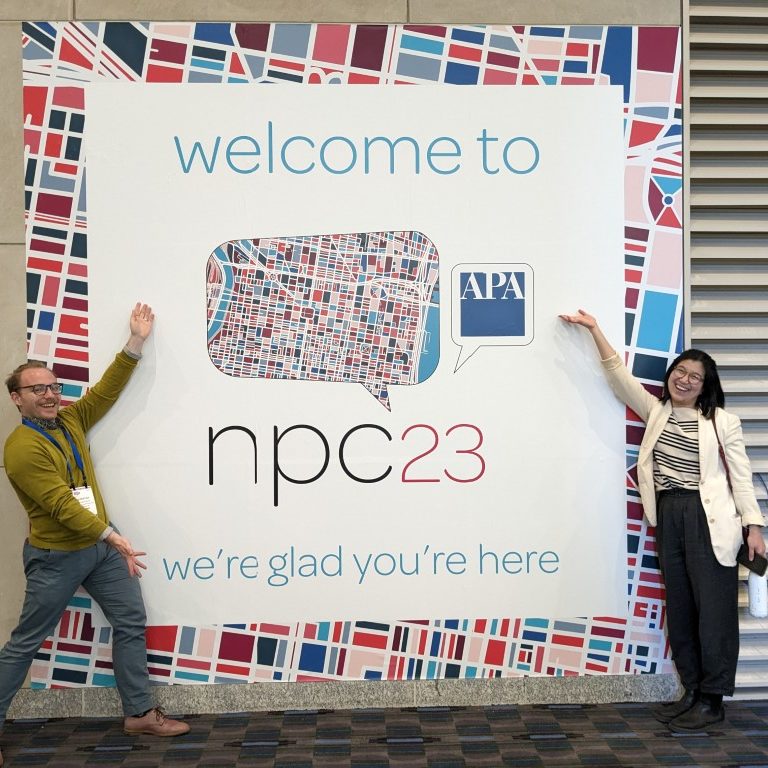
Names:
Christian Brandt and Gloria Huangpu
Current Positions:
Interim Director of Community Engagement (Christian) and Community Engagement Specialist (Gloria)
Year of Graduations:
2018 (Christian) and 2022 (Coursework, Gloria)
How did UEP prepare you for your current role as practical visionaries?
Christian – I got into planning school thinking I was going to work in housing development, which is one of the reasons why I was interested in Tufts. But, I quickly realized I didn’t like the finance side of it (housing development). I knew I liked the idea of planning, but I didn’t know that much about it. Working with Prof. Laurie Goldman greatly influenced where I ended up because working with her was the first time I started doing community engagement work within planning. In many ways, the community-based work that Tufts has you do was instrumental in preparing me for community engagement work.
Gloria – The thing about UEP, in addition to the informational content learning, was the opportunity to practice skills that I’m now using in my role in community engagement: facilitation skills, identifying stakeholders and connections within the community you’re working in through the partnerships Tufts has with local organizations.
Do you have any advice for present or future UEPers interested in your field?
Christian – I don’t think community engagement is that big of an area, and many of us are not planners. For instance, I was the first planner in the community engagement department hired at MAPC. We now have Gloria, a planner, and other staff members, who are planners. One thing to keep in mind is that community engagement is becoming more of a practice. It is one of those things you must bring to your practice if you’re doing other kinds of planning. There are not many community engagement-specific jobs out there. When I was applying for jobs after grad school, I applied to 40 jobs, and this was the only community engagement job I applied to because it was the only one that existed. There are a lot more now – around six municipalities in the Boston region have hired community engagement specialists, and other regional planning agencies in the rest of the country have community engagement staff too. Some people do excellent community engagement while working as technical planners in municipalities or consulting firms. There’s a shift in focus to community engagement as a discrete discipline of planning.
Gloria – I want to highlight what Christian said: that community engagement work is already integrated into other disciplines. A lot of it is grounded in compassion and empathy, both for the people that you are working with or engaging in the community, but also turning that internally and making sure you’re working from a place of groundedness so that you can then work with and support the communities that are needing the support.
Christian – I love what you said because I always think about a class I took with Prof. Goldman called Leadership and Organizational Development, and she had us create our own public narratives based on a model developed by Marshall Ganz. What is the story of me? What is the story of us? What is the story of now? Why am I doing this work? Why are we all here doing this work? Why is it important that we are doing it together? And why is it important to be doing this work now? Answering those questions, or at least trying to, has kept me focused on the work I want to do, its purpose, and its meaning.
Anything else you want to add?
Christian – The UEP network in Massachusetts is really strong; around a quarter of the MAPC staff is a graduate. The current AICP ethics officer, Ralph Wilmer, went to UEP. There are UEP alums everywhere. I’ve never met a UEP alum that hasn’t been interested in connecting.
Gloria – I would vouch for the people who aren’t in the Boston area because I did some exploring before deciding to attend. Also, I would say to savor the time you’re in school.